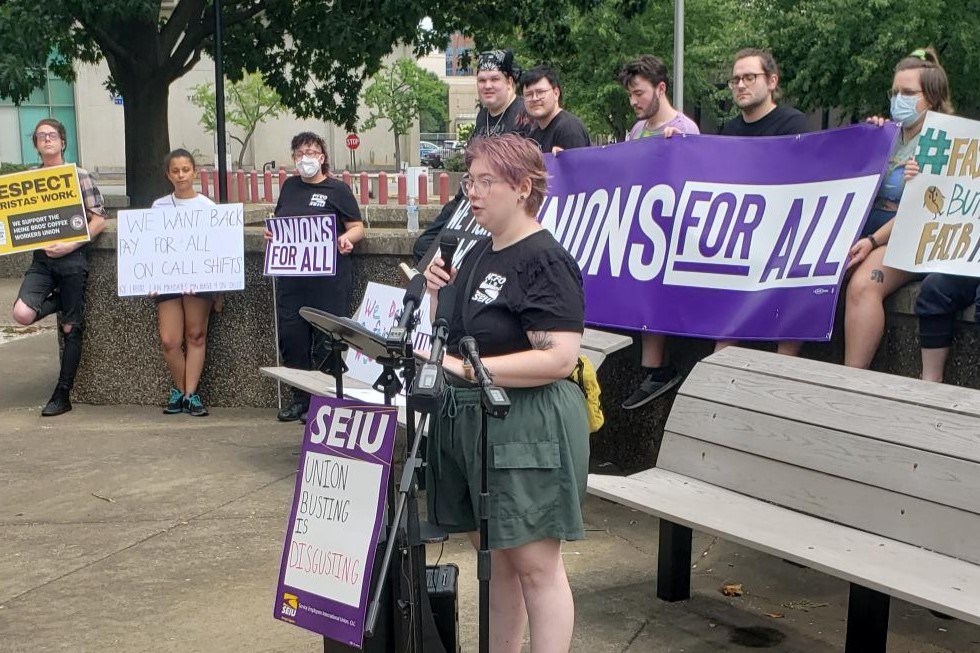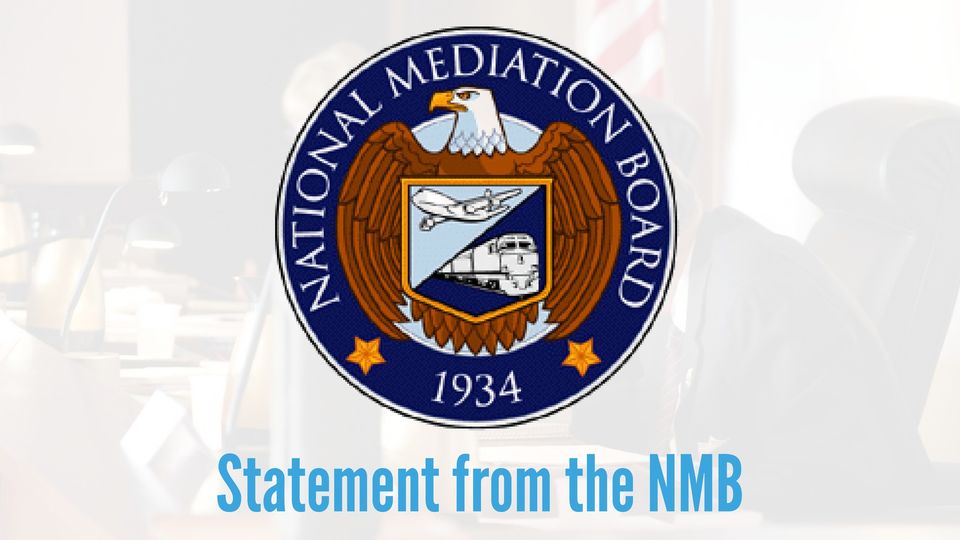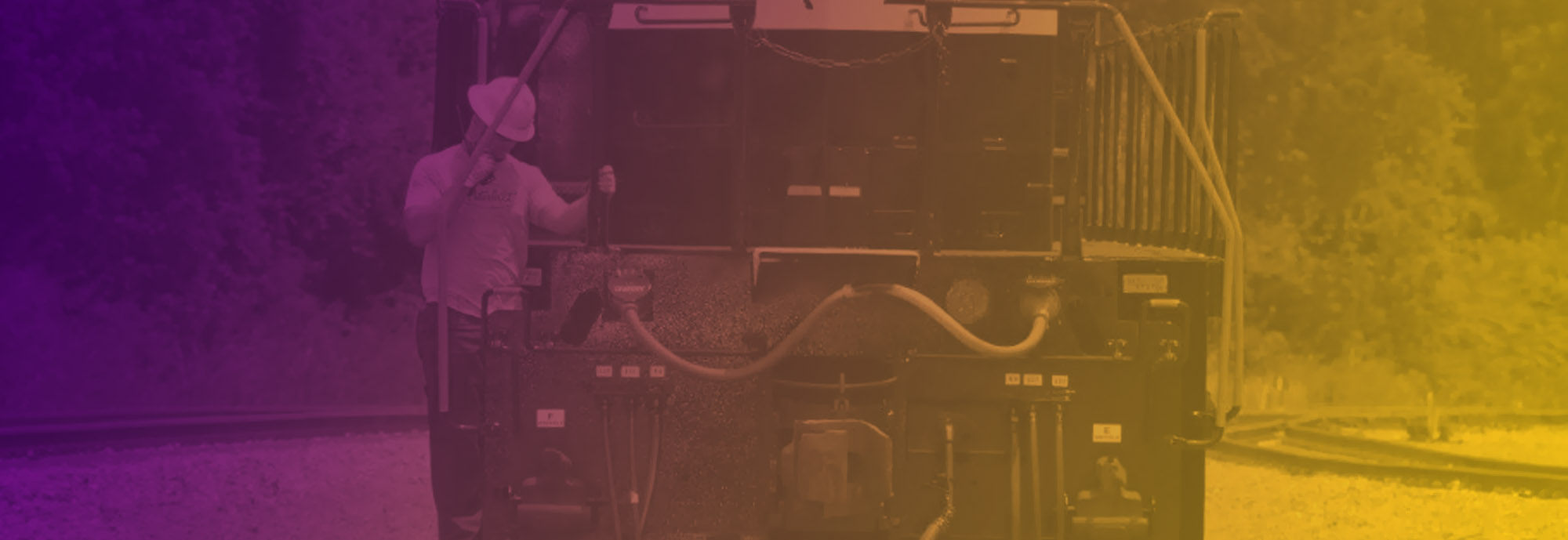News Posts
NCFO Press Release

Update on the Tentative Agreement
Ratification ballots pertaining to the Tentative Agreement (TA) between the National Conference of Firemen & Oilers and the National Carriers Conference Committee {Class I freight Railroads} have been sent to the National Conference of Firemen & Oilers members, last known address. The deadline to vote on the TA is October 13, 2022 at 10:00 a.m. EST. NCFO Members will receive instructions on how to vote. The American Arbitration Association has been retained to conduct the balloting.
If you experience any problem with the system, please call (800) 273-0726 or (215) 731-2280 (Monday to Friday, 9:00 a.m. to 5:00 p.m. EST).

NCFO Press Release

September 16, 2022 Strike Q&A
Question: Can NCFO Members go on strike at 12:00:001 AM on Friday, September 16, 2022?
Answer: No. NCFO is engaging in an agreement ratification process, during which NCFO Members cannot exercise self-help (i.e., go on strike) at this time.
Question: If other Railroad crafts strike at 12:00:01 AM on Friday, September 16, 2022, do NCFO Members leave the job?
Answer: NCFO Members are required to honor all picket lines. If you report to work and other crafts have formed a picket line, DO NOT CROSS THE PICKET LINE. However, if you are mid-shift (already at work and working) and a strike is called by other Union Crafts, NCFO Members must finish working their shift, secure all equipment and leave work thereafter and not return until the strike is over, or there is a cessation of the strike or workers are compelled to return to work by legislation or order.

NCFO Press Release

NCFO Executive Board Provides an UPDATE on the tentative agreement with the National Carrier’s Conference Committee
Since we last communicated with the National Conference of Firemen & Oilers (NCFO) Membership, the NCFO has met with the Railroads at a public interest meeting at the NMB with Labor Secretary Walsh and continued to have discussions with the Railroads concerning the recommendations of Presidential Emergency Board #250. The NCFO met with all our General Chairmen and Regional Chairmen to discuss our situation. It was the opinion of NCFO officers and the General and Regional Chairmen that, since this contract would offer the highest wage increase in 48 years and the highest amount of retroactive pay in any National Agreement, this agreement must be presented to the membership for their consideration, and that the NCFO has to allow our democratic process to move forward and allow the Members to Vote on their contract. Therefore, The National Conference of Firemen & Oilers (NCFO) reached a Tentative Agreement with the National Carrier’s Conference Committee (NCCC). This Tentative Agreement will be presented to the NCFO Members for ratification.
The Tentative Agreement secures all of the recommendations of Presidential Emergency Board #250. Under the terms of this Agreement, employees will receive General Wage Increases of 24% compounded Increases over 5 years.
The recommendation also called for five $1,000 Service Recognition Bonus. The Tentative Agreement provides positive design changes to our Healthcare Plans related to the coverage and treatment for autism disorder and hearing benefits. It also provides an additional day of paid leave.
We also noticed that a lot of misinformation is being spread, we recommend that you and your family, review the terms of the agreement and the information that will be provided by NCFO to make an educated decision which would be in the best interest of your family.
NCFO Members in National Freight handling can expect to receive voting instructions in the near future.

NCFO Press Release

UNION VICTORY! 2ND LARGEST BARISTA UNION IN THE COUNTRY IS NOW HEINE BROTHERS COFFEE WORKERS’ UNION IN LOUISVILLE, KY
Heine Brothers’ Coffee workers, organizing with NCFO 32BJ SEIU, won their union election with a significant majority last night. The workers will now sit at the bargaining table with their employer and negotiate a fair contract for all Heine Brothers’ workers.
“Since we knocked on the union’s door six months ago, our goal has always been to organize a better workplace for ourselves and for our coworkers. We love our jobs, and we love each other. That is why we started organizing and that is the strength and unity that won us this union election,” said Sabrina Lindsey, Heine Brothers barista.
Workers announced their intent to unionize in April of this year. The organizing workers decided to organize all 17 (formerly 18) Heine Brothers stores because workers are all facing the same issues across the company, and workers also pick up shifts at multiple store locations.
At a victory party after the close of the election, workers gathered to hear the news that they are the second largest group of baristas to organize across the country.
“Winning this election means so much to all of us who have spent months organizing, talking to our coworkers, and bringing our friends and coworkers together to fight for something bigger than ourselves but that we will all benefit from. We owe so much to the generations of undervalued workers and the union organizers who came before us, and we are honored to carry on this fight in their honor. This win means that we get to sit down with Heine Brothers’ corporate and negotiate a contract that gives us the living wages we need, the schedules that allow us to plan our lives outside of work, and the power to have our voices heard in our workplaces to make effective change,” said Gami Ray, Heine Brothers’ worker.
Newly unionized Heine Brothers’ Coffee baristas hope to begin bargaining in good faith with their employer for a fair contract as soon as possible.

NCFO Press Release

NATIONAL CONFERENCE OF FIREMEN & OILERS’ PRESIDENT DEAN DEVITA ISSUES A STATEMENT REGARDING NATIONAL FREIGHT NEGOTIATIONS
Dear Brothers and Sisters:
Since the Presidential Emergency Board (PEB) #250, the NCFO has been asked to comment concerning this situation. This is a sensitive time in negotiations and we don’t believe in bargaining in the press, social media, or a microphone in the streets.
Traditionally, after a recommendation is made by a PEB, the parties bargain over the findings. After these recommendations became public, the Railroads agreed to the recommendations. We have met with them several times to discuss the recommendations. Progress was made and agreed to concerning language.
At this time, the National Conference of Firemen & Oilers have yet to reach a tentative agreement.
It is our goal to reach a tentative agreement. We will continue good faith bargaining throughout this cooling-off period as prescribed by the Railway Labor Act.
On September 2, 2022, your union was notified by the National Mediation Board that they are of opinion that, in public interest, further conferences will be held this week concerning this dispute. The NCFO is looking forward to the meetings.
I want to thank you for your patience and support during these few years, but our work needs to be completed, so we can present the membership an agreement to vote on.
NCFO President Dean Devita

Coordinated Bargaining Coalition Statement

Today, July 24, 2022, the Rail Unions, who are bargaining as part of the Coordinated Bargaining Coalition and the Brotherhood of Maintenance of Way/SMART Mechanical Coalition, and the Carriers represented by the National Carriers Conference Committee (NCCC) began their presentations before the Presidential Emergency Board (PEB) appointed President Biden. The hearings are scheduled to continue through Thursday, July 28, with Friday reserved for facilitation meetings with the parties and the PEB. Following the hearings, the PEB will issue recommendations for settlement of the national agreement dispute. A second thirty-day cooling off period will begin when those recommendations are issued, which should occur on or before August 15.
A summary of the proposals being advanced by the Rail Unions can be found at https://ncfo.org/…/07/Union-PEB-Proposals_07_11_22.pdf, and a summary of the proposals being advanced by the NCCC can be found at https://ncfo.org/…/2022/07/NCCC-Proposal-PEB-Position.pdf. The Unions’ proposals include a 5-year wage proposal seeking an increase of 31.2% when compounded, while the Carriers are asking the PEB to recommend 17% compounded over 5 years. On the issue of healthcare, the Unions are seeking status quo for employee costs sharing and only seeking slight increases in autism and hearing benefits that are long overdue. Despite employees keeping the Nation’s rail system operating during the pandemic as “essential employees,” the Carriers have the unmitigated gall to ask the PEB recommend massive healthcare concessions in both the form of drastic increases in employee costs and decreases in certain benefits for employees along with healthcare plan changes that only serve to further increase the records profits they are already reaping. In addition, to wages and healthcare, the Unions are also seeking to create a national sick leave policy and to add 3 new holidays, along with various craft specific work rule proposals.
As we have previously communicated, the Rail Unions remain united in their efforts to secure the best contract possible for our members. We will show this week that the Unions’ proposals are supported by current economic data and are more than warranted when compared to our memberships’ contribution to the record profits of the rail carriers.
Additional information will be provided as developments warrant. We appreciate your continuing support.
The unions comprising the Coordinated Bargaining Coalition are: the American Train Dispatchers Association (ATDA); the Brotherhood of Locomotive Engineers and Trainmen / Teamsters Rail Conference (BLET); the Brotherhood of Railroad Signalmen (BRS); the International Association of Machinists (IAM); the International Brotherhood of Boilermakers (IBB); the National Conference of Firemen & Oilers/SEIU (NCFO); the International Brotherhood of Electrical Workers (IBEW); the Transport Workers Union of America (TWU); the Transportation Communications Union / IAM (TCU), including TCU’s Brotherhood Railway Carmen Division (BRC); and the Transportation Division of the International Association of Sheet Metal, Air, Rail, and Transportation Workers (SMART–TD).
The Brotherhood of Maintenance of Way Employees Division and SMART Mechanical Unions are also bargaining as a coalition.
Collectively, these Unions represent approximately 115,000 railroad workers covered by the various organizations’ national agreements, and comprise 100% of the workforce who will be impacted by this round of negotiations.

National Mediation Board Update

RE: MEMBERS APPOINTED TO PEB NO. 250
On July 15, 2022, President Joseph R. Biden, Jr. established Presidential Emergency Board (PEB) No. 250, effective July 18, 2022, to investigate collective bargaining disputes between certain railroads represented by the National Carriers’ Conference Committee of the National Railway Labor Conference and certain of their employees represented by certain labor organizations.
President Biden has appointed the following members to Emergency Board 250:
Ira F. Jaffe, Chairman
Barbara C. Deinhardt, Member
David P. Twomey, Member
Pursuant to the Railway Labor Act, the Emergency Board will conduct a hearing and make a recommendation for settlement within 30 days of the President’s creation of the Emergency Board. No work stoppages, and no changes in the conditions out of which the disputes arose (except by agreement of the parties), are permissible following the creation of the Emergency Board and for the 30 days following the date the Emergency Board submits its report to the President.
The National Mediation Board (NMB) is an independent agency created by the Railway Labor Act, which governs labor management relations in the railroad and airline industries. To avoid serious disruptions to the Nation’s economy and protect the public interest, the Act imposes on carriers and their employees the duty of settling disputes through negotiation, mediation, and arbitration. The NMB, headed by three Presidential appointees, has as its chief statutory responsibilities: (1) mediation of collective bargaining disputes; (2) determination of employee representation for collective bargaining processes; and (3) administration of a grievance arbitration system.
Contact: NMB Public Information Line: 202-692-5050

Coordinated Bargaining Coalition Statement

The Coordinated Bargaining Coalition again calls on NMB to proffer arbitration.
While waiting for a response to our recent request to the National Mediation Board that a proffer of arbitration be issued by the Board to move our contract dispute to the next level, CBC unions participated in two additional days of mediated bargaining sessions with NCCC this week.
Once again, the nation’s class 1 rail carriers showed just how far they are removed from the realities that their employees and shippers are experiencing. Without regard for the beating that these rail carriers took in front of the Surface Transportation Board a week ago, and without regard to their continued record profit reports, the rail carriers continue to advance proposals at the bargaining table that they have previously been told are unacceptable to the CBC Unions and our members.
Due to the NCCC’s refusal to negotiate a fair agreement in good faith, all CBC Unions again request that the NMB proffer arbitration to the parties to end the endless delays by the rail carriers.
As we advised in January and April, we had hoped that the involvement of the NMB would cause the industry to refocus on addressing the legitimate needs of the men and women whose labor generates their positive financial returns. That has not happened, and there is no indication that it will without allowing the remaining steps of the Railway Labor Act to play out to compel a favorable settlement.
The unions comprising the Coordinated Bargaining Coalition are: the American Train Dispatchers Association (ATDA); the Brotherhood of Locomotive Engineers and Trainmen / Teamsters Rail Conference (BLET); the Brotherhood of Railroad Signalmen (BRS); the International Association of Machinists (IAM); the International Brotherhood of Boilermakers (IBB); the National Conference of Firemen & Oilers/SEIU (NCFO); the International Brotherhood of Electrical Workers (IBEW); the Transport Workers Union of America (TWU); the Transportation Communications Union / IAM (TCU), including TCU’s Brotherhood Railway Carmen Division (BRC); and the Transportation Division of the International Association of Sheet Metal, Air, Rail, and Transportation Workers (SMART–TD).
Collectively, the CBC unions represent more than 105,000 railroad workers covered by the various organizations’ national agreements, and comprise over 80% of the workforce who will be impacted by this round of negotiations.

LETTER: In Support Of The $4.2 Billion Bond Appropriation For California High-Speed Rail

President Pro Tempore Toni Atkins
1021 O Street, Suite 8518
Sacramento, CA 95814
Speaker Anthony Rendon
State Capitol, Room 219
Sacramento, CA 95814
May 4, 2022
Subject: In support of the $4.2 bond appropriation for California High-Speed Rail
Dear President Pro Tempore Atkins and Speaker Rendon,
As the leading national coalition working to fund electrified high-speed rail projects, the U.S. High Speed Rail Coalition urges the California State Legislature to approve the $4.2 billion voter-approved bond appropriation for the California High-Speed Rail project included in Governor Newsom’s Fiscal Year 2022/2023 Budget.
The ongoing spike in gas prices shows that California voters were wise to vote in favor of Prop 1A in 2008. High-speed rail is how we break free from oil – as well as the enormous burdens it places on consumers, communities and the climate.
Fourteen years later, the majority of California voters continue to support the high-speed rail project. According to a new Los Angeles Times – Berkeley poll, 56% of registered voters in California want to continue building the high-speed rail project, including 73% of registered Democrats and 54% of Independents.
Beyond the Central Valley, where construction is underway, support for the project is strong. 59% of L.A. County voters support continued construction of the project – including 32% who strongly favor continued construction – while only 29% oppose it. And 65% of Bay Area voters support continued construction, while 27% oppose it.
As the Legislature reviews Governor Newsom’s budget request, the California High-Speed Rail Authority is competing for billions of dollars in competitive grant opportunities in the Bipartisan Infrastructure Law, as well as billions more in the pending budget reconciliation bill, which includes $10 billion in dedicated funding for high-speed rail projects.
Approval of the $4.2 billion bond appropriation will signal continued support by the State of California, giving the Biden Administration an incentive to provide significant federal investments for the project. Approving these funds will also make it easier for our coalition to advocate for new federal funding for the California High-Speed Rail project.
Together, these state and federal investments will help expedite the completion of an initial operating segment while advancing construction on the project’s critical bookends in the Los Angeles Basin and the Bay Area.
While project costs continue to generate news, we must keep in mind that building the equivalent highway or aviation capacity would cost nearly twice as much as finishing the job on California’s high-speed rail project.
Meanwhile, The California High-Speed Rail Authority is moving beyond the issues of the past and making significant strides forward. The project has created 7,800 labor jobs, $5.2 billion in labor income and $13.7 billion in economic output. Daily construction jobs have tripled since 2018. 90% of the parcels needed for construction in the Central Valley have been purchased. And the Authority estimates the entire 500-mile system will be fully environmentally cleared by Fiscal Year 2023/24.
America’s effort to decarbonize transportation depends on the completion of the California High-Speed Rail project. Once the Los Angeles-to-San Francisco line is up and running, it will slash emissions by an average of 2 million metric tons annually – equivalent to saving 225 million gallons of gas and taking 432,000 cars off the road every single year.
To achieve sustainability, we need high-speed rail. There is no cheaper or better alternative to addressing the state’s transportation and oil dependency challenges. As a recent New York Times article stated, the California High-Speed Rail project is the most visible test of whether America can complete “the transformative projects necessary to confront 21st century challenges.”
We urge you to redouble support for this monumental effort and show the nation that America’s most advanced bullet train project is moving full speed ahead.
Sincerely,
Secretary Anthony Foxx, Co-Chair, U.S. High Speed Rail Coalition
Secretary Ray LaHood, Co-Chair, U.S. High Speed Rail Coalition
Secretary Norman Mineta, Co-Chair, U.S. High Speed Rail Coalition
Rod Diridon, Co-Chair, U.S. High Speed Rail Coalition
Active San Gabriel Valley
AECOM
American Council of Engineering Companies, California
Associated General Contractors of CA
Bay Area Council
Brotherhood of Railroad Signalmen
CALPIRG
Guadalupe River Park Conservancy
High Speed Rail Alliance
HJI Group
HNTB
International Union of Operating Engineers (IUOE)
Laborers International Union of North America (LIUNA)
MBA Architects
National Conference of Firemen & Oilers 32BJ SEIU
Northern California Carpenters Union
Progressive Democrats of America
Rail Passengers Association
Railway Supply Institute
Rebuild SoCal Partnership
Safe Routes Partnership
Santa Clara & San Benito Counties Building & Construction Trades Council
Siemens USA
Silicon Valley Leadership Group
SPUR
Teamsters Rail Conference
Titan Freight Systems, Inc.
Transit Oriented Development Institute
Transportation California
U.S. High Speed Rail Association
About the U.S. High Speed Rail Coalition
The U.S. High Speed Rail Coalition mobilizes leading unions, businesses, and public servants to advocate for investments that will finally make high-speed rail a reality in America.
Former USDOT Secretaries Ray LaHood, Norman Mineta, and Anthony Foxx as well as California High Speed Rail Authority Chair Emeritus Rod Diridon serve as Co-Chairs of the Coalition’s Executive Committee.
Our Executive Committee members are ACI, AECOM, Arup, Brightline, Brotherhood of Railroad Signalmen, Deutsche Banh, Grimshaw, HJI Group, HNTB, The International Union of Operating Engineers (IUOE), Quandel Consultants, Renfe, National Conference of Firemen & Oilers 32BJ SEIU, Siemens, Stacy and Witbeck, Teamsters Rail Conference, Waterford Solutions Limited, and WSP.
U.S. High Speed Rail Coalition
For more information, call (202) 248-5001
[email protected]
